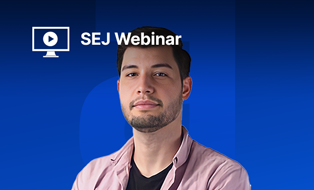Bing was launched by Microsoft as a consolidated search engine brand and technology which the company hopes to compete side by side with Google. Bing’s much awaited launch caused some real buzz in the Internet world. Today we are featuring the interview with Rajesh Srivastava, Principle Group Manager, Bing.
First question that probably interests everyone: why no Bing toolbar? I understand you may be tired if people asking you that – but still, just a few words on Bing plans on that.
We currently have two amazing toolbars in the MSN toolbar and Windows Live toolbar, and the search functionality for both is powered by Bing. We’re always listening to customers to learn what they want and introduce new products appropriately, however we don’t have any plans for a Bing toolbar to announce at this time.
How long did it take the whole Bing team to choose and approve the name?
We went through an extensive naming process to develop the new brand name: months of development and worldwide naming research helped us narrow in on a few top candidates. We did all the usual things you would expect: trademark searches, WHOIS lookups, usability and recall studies.
We were looking for a name that was short, easy to say and spell, and would be globally appropriate. In addition, we were looking for names that carried inherent qualities that spoke to the search category itself. Our research around Bing showed that it connoted “fast,” “easy,” and “delight” – all qualities that mapped very naturally to the search experience.
It was also seen as the friendliest and most approachable name option. We like Bing because it allows for a new experience beyond search. It sounds off in our heads when we think about that moment of discovery and decision making – about resolution of the important tasks we all think are important.
Are you generally satisfied with publicity. There have been a lot of positive reviews as well very good trends. What do you think about how Bing was accepted?
The launch of Bing was a milestone for us and we’re pleased with the initial reviews, but this is only the beginning. We believe there is much yet to accomplish in search and the positive feedback we’ve seen to this point is confirmation that people want more from search. Bing is a first step on this journey of evolving search into a more refined tool to help customers cut through the Internet’s clutter to make faster, more informed decisions.
How was webmasters’ feedback? Did they find Bing ranking algorithm predictable / clear enough? Or was there much misunderstanding?
We are continuously refining and improving our crawling and indexing abilities, however with Bing, there were no major changes to our indexing which helped with a smooth transition for our webmaster community when we launched Bing. We continue to engage directly with our webmasters via forums and the Webmaster blog and are focused on making the experience transparent and predictable for this core audience.
A very good thing about Bing is its team willingness to interact with webmasters and searchers… How (fast) is users’ feedback implemented?
We maintain and manage an active community site for all our customers including webmasters, developers and our every day searchers. The community site features a blog where we share updates on features, details behind the design and development of Bing and tips and tools for increasing engagement with your site.
We work as quickly as possible to respond to and implement feedback from customers. For example, when we launched Bing, our community made us aware of an issue with our video preview functionality. We worked quickly to resolve the issues and within a couple of days we had addressed the situation and updated our community on the blog. It’s because of the two way dialogue we maintain with our passionate community that we are able to address and fix issues quickly.
How do you leverage social media to communicate with webmasters?
We see social media as an excellent way to communicate with webmasters and all our customers. In fact, last week we made available the Bing Toolbox which is designed to build community and provide all of the content and tools webmasters and developers need to enhance their sites, understand the impact of Bing’s new features, and get the most out of using the Bing API. With the launch of Bing, we also launched a new Bing community site focused on engaging our broad search community including webmasters.
We publish regular blog posts and have active forum discussions on topics including SEO, SEM, and site architecture. In addition to our community sites, forums and blogs, we’ve developed a strong following on Twitter where we have a team monitoring and responding to issues regularly. We also have a presence on Facebook which we use to communicate updates on Bing as well.
Launching a search engine in the social media era, do you feel it was worth trying to make the search more "social" (most established search engines are now trying to introduce some social search features like voting and commenting). Do you plan to start experimenting with user-enhanced search features?
Our main focus right now is providing the best search experience for our customers. We’re always looking at areas where we can grow and innovate, and social and user-enhanced search features are certainly on our list.
For example, through Facebook and Twitter we are engaging our users in cool and interesting ways. We continue to hear that one of the favorite features of Bing is the rich and interactive daily image that appears on the Bing homepage. Due to the great feedback through channels like Twitter and Facebook, we decided to open photo submissions and voting to the public in the form of a Bing Photo contest on Facebook. The winning photograph will be featured as the homepage image on Bing on August 3rd and the winning photographer will be given credit for the photo.
We’ve also created a photo sharing app on Facebook in which people can share or tag a Bing homepage image they like. This type of voting and commenting helps us better understand what our users like to see. So these are a few ways we’re using social media to engage our users. We’re also working with twitter to incorporate searches for tweets into Bing. See our recent blog post for more details.





![[SEO, PPC & Attribution] Unlocking The Power Of Offline Marketing In A Digital World](https://www.searchenginejournal.com/wp-content/uploads/2025/03/sidebar1x-534.png)